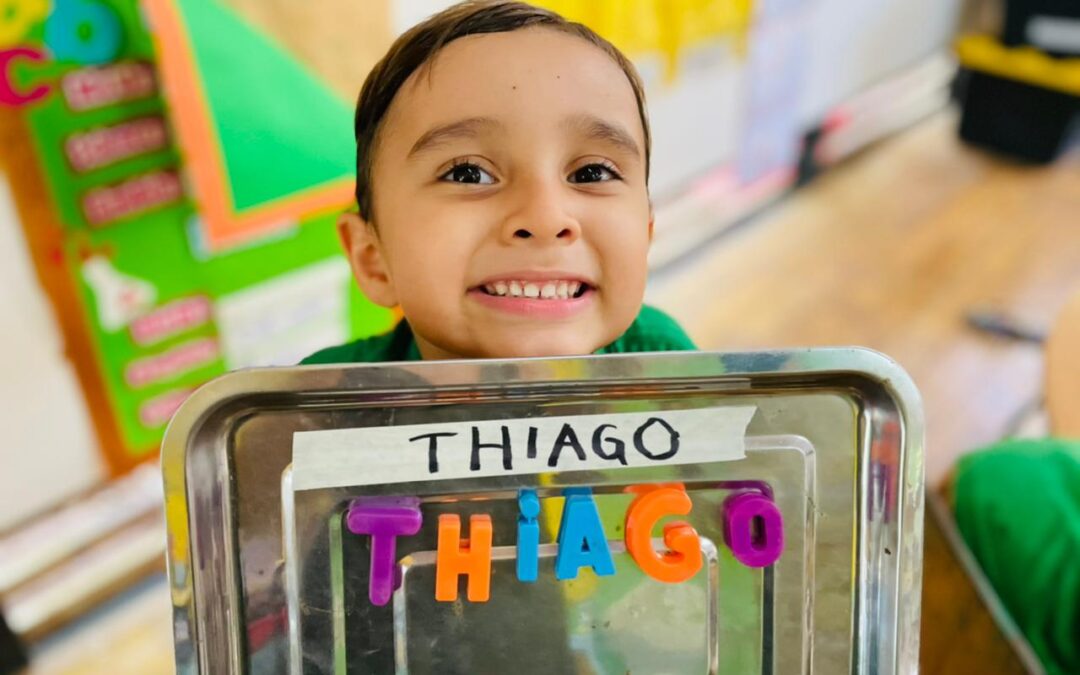
by Angie Briceño | May 18, 2021
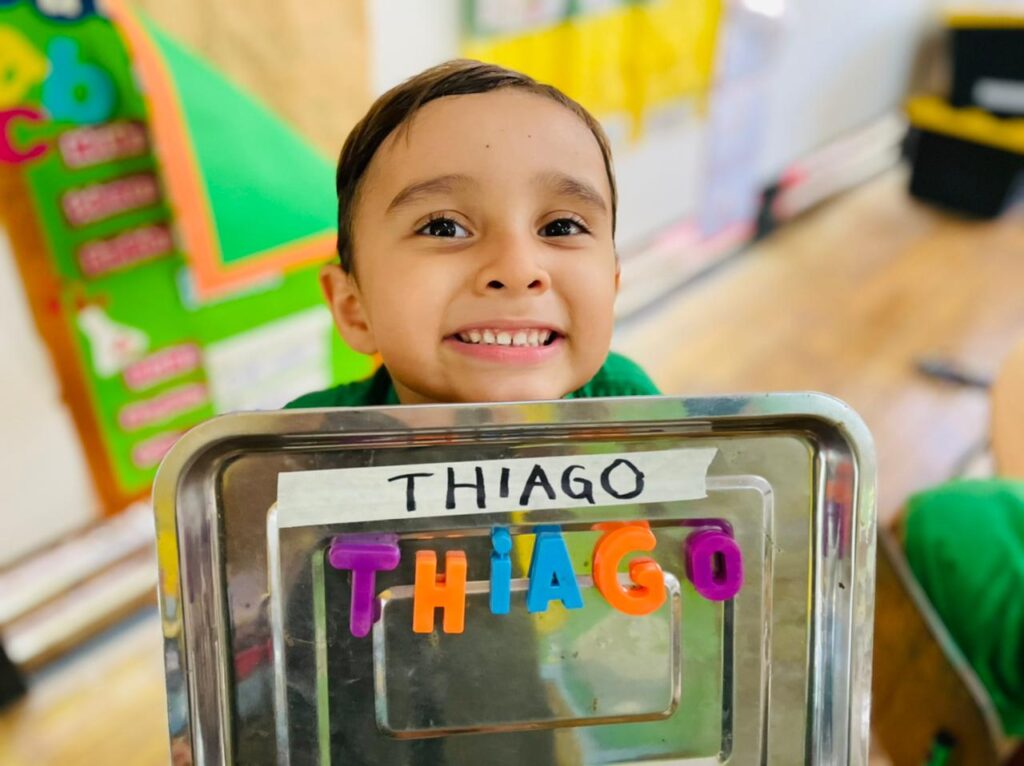
We have reached the end of the first semester of the year of transition to the international calendar and the students have made a great effort despite the difficulties of the bimodality that has occurred on different occasions.
We are aware of the difficult times that our community and the country have been going through during these months and that they have been challenging for students, that is why we want to communicate the importance of attending the parent-teacher conferences that will be held virtually this coming June 9th and 10th. During the parent-teacher conferences you will be able to learn more about the performance of your child. . It is important to be prepared and take into consideration some aspects for these conferences:
- It is a two-way conversation that focuses on the student’s academic performance and emotional development. The conversation should inform the parent of how the student is doing in class and how the student can improve. Make sure you bring questions you can ask the teachers to learn more about your child’s classroom performance and emotional development.
- Just like you, as a parent, the teachers at Futuro Verde also want your child to succeed, that is why during the conferences you will be able to discuss possible areas of growth both academically and in their overall development. It is important for you to be ready to ask questions about how you can support your child at home as well as how you can support your child at school, and together be able to come up with an action plan.
- If you are still not sure about the Futuro Verde´s assessment in your child’s grade, now is a good time to ask about it.
- Share with teachers information about your child, what is your child good at, the areas your child needs more support, areas in which your child is passionate about, and areas your child may not be that interested.
After teacher conferences, the appropriate follow-up is very important:
- Take notes on all the information you received during the conference. What will the teachers be doing to support the student and what will you be doing at home to support your child.
- You can talk to the teachers during the conference and schedule a meeting some time after the parent-teacher conference to follow up on the action plan.
- Remember that parent-teacher conferences are about your child, so be sure to tell them! Tell them what you learned and how they will receive support from both school and home. Ask what he or she thinks about the plan and about the suggestions.
We hope to see you all at the parent-teacher conferences on June 9 and 10 to share with teachers and stay informed. Invitations for the virtual conferences will be sent out closer to the conference dates. Do not miss them!

by Angie Briceño | May 15, 2021

During this time of uncertainty, where the number of cases in our area has been increasing, Futuro Verde continues to work in order to provide educational services to all of our students. We improve and learn day by day which leads us to offer the modality of virtual lessons and in campus lessons. Our goal is to offer spaces for students where they can continue with their lessons without interrupting their learning process.
A group of teachers and members of the administrative team have worked hard creating the virtual schedules shared above and we will continue working on improving and offering the best virtual education to students when necessary.
It is important for you to consider that even though due to the positive cases of Covid-19 that have been presented in the past and that have forced us to change to on-line lessons in certain grades, these classes are still just as important as the in-person ones. We would like to share with you some tips to follow during these weeks:
- Keep basic materials handy, such as a notebook, white sheets of paper, and a pencil case with supplies.
- Follow the virtual class schedule so that your child can be accompanied by the teacher synchronously and asynchronously throughout the day.
- Contact the teachers at the end of the week and stay informed of your child’s progress.
If you have any questions, all the teachers and staff are here to help.
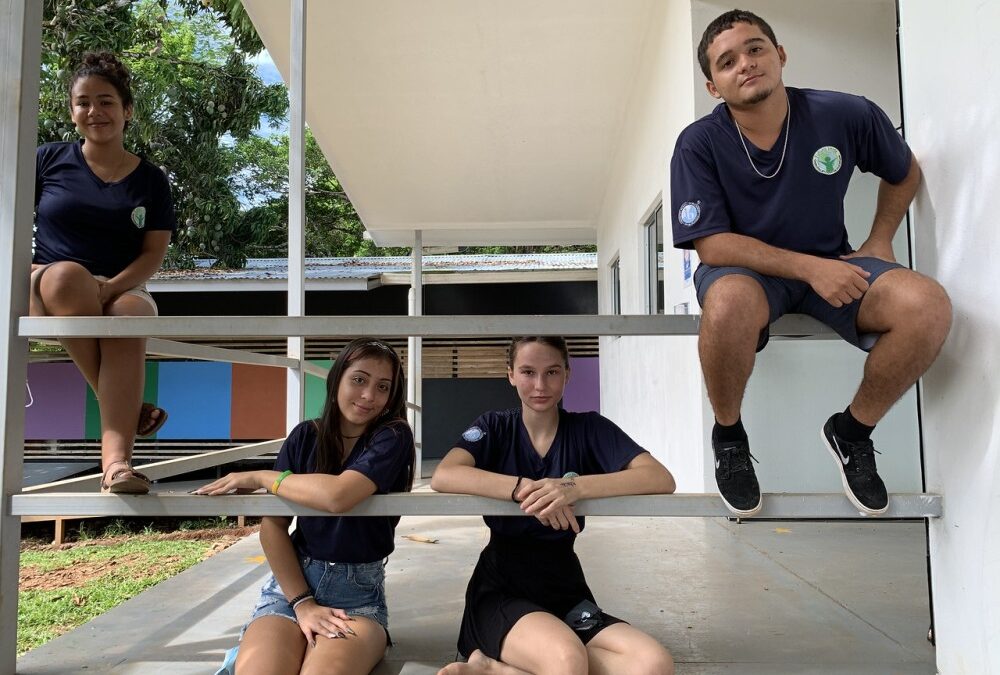
by Khalida Lockheed | May 7, 2021
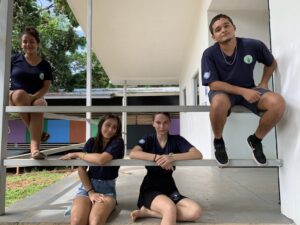
The International Baccalaureate is not only for Diploma Program students, 11th and 12th graders. The IB Organization offers programs in the Primary and Middle years, preparing students to be global citizens, transdisciplinary thinkers, and well rounded people.
Like other IB schools in Costa Rica, Futuro Verde, is not authorized as a “continuum school” offering all three programs. However, by offering the capstone Diploma Program, in order to properly prepare students to be successful has required that we align the primary and middle years’ curriculum to IB.
What does this mean?
It means that all teachers, at all levels, must learn about the IB programs and ensure students are meeting the required standards.
Furthermore, the IB programs and courses are continuously undergoing revision with updates and thorough course program review and revision every seven years. IB encourages teachers to participate in this process making it a collaborative product.
Okay, you say, it makes sense that teachers and students should learn about and practice the IB program at their level. But what about families? As parents of students in a private school, it is clear that education is an important value in your family. Why it is important for parents to understand the program of study of their children became more apparent during the last school year when the pandemic sent students home for virtual learning.
We all experienced school in a new way over the last year!
To this end, we invite you to visit this space for more information and an overview of the IB. In addition, we will be organizing parent meetings to further inform and learn about the IB programs and what it means for students at every level.
Keep tuned!
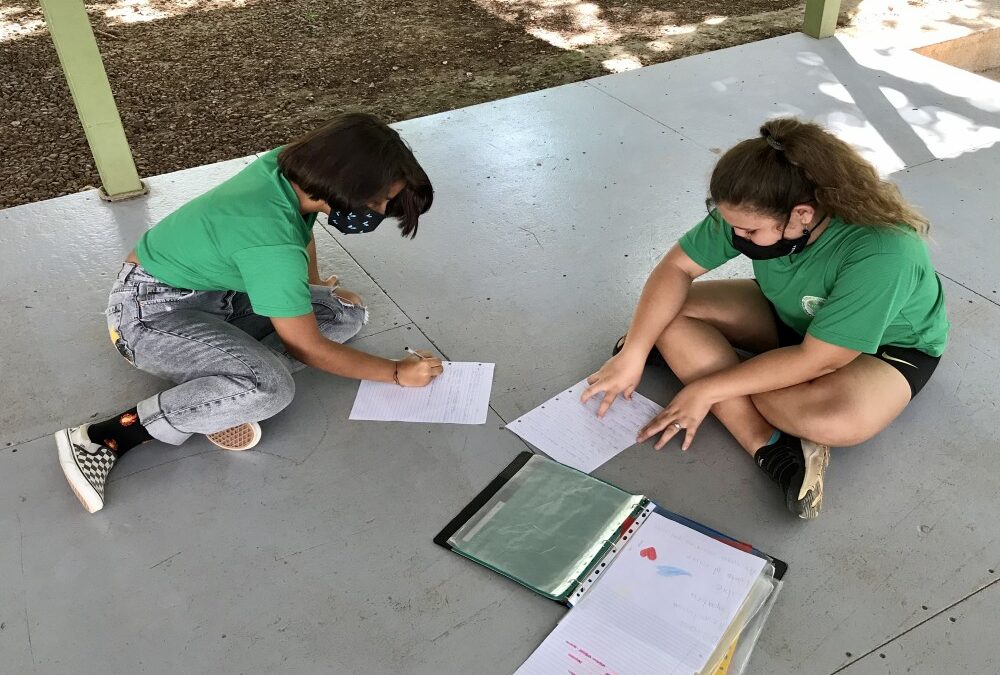
by Angie Briceño | Mar 4, 2021
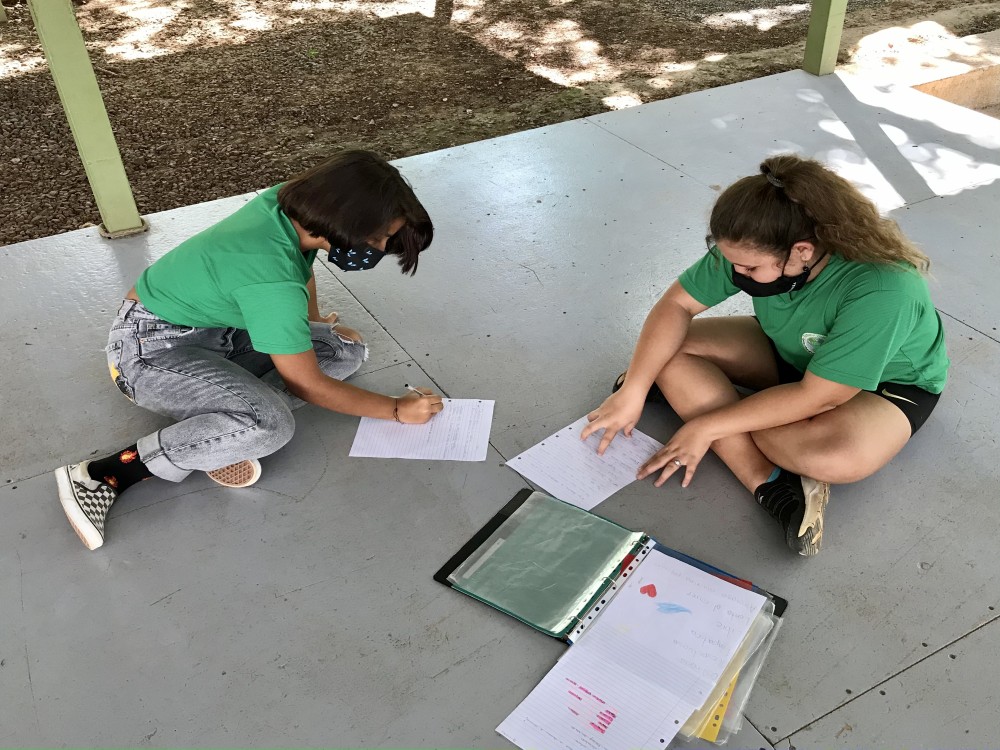
The time is approaching when teachers send home mid-semester reports. Mid-semester reports are just as important as end-of-semester grades, if not more important, because the purpose of these reports is to inform families about their child’s academic and class progress during the first semester.
The mid-semester reports for elementary and junior high school grades come with specific sections related to the student’s academic performance in the different areas in the different subjects they are studying.
This year there is going to be a major change in students’ mid-semester reports, as the report recognizes and endorses the different areas of the student:
- Attitude: Has a positive and respectful attitude towards peers and teachers.
- Delivery: Complies with the delivery of assignments and activities performed in class.
- Skills: Develops the skills and acquires the knowledge expected in the class activities or assignments.
- Effort: Demonstrates your best effort.
Sending the reports is an excellent time to talk to your child and also, do not hesitate to contact the teachers if you have any questions.

by Javier Sánchez Cáceres | Mar 4, 2021

World Water Day
World Water Day is celebrated on March 22 to reflect on the importance of this natural resource that allows us to live. We are very fortunate to live in an area where there is water everywhere and we do not have to travel to get drinking water. In spite of this, there is a lack of awareness about the proper use of this natural resource. That is why the celebration of World Water Day is extremely important, as it allows us to remember how urgent it is to use water responsibly and to be grateful for its abundance.
Possibly the misuse of water results from ignorance, as few have any idea that more than 2 million people do not have access to safe water or have to ration their use on a daily basis due to the threat of drought. During the COVID-19 pandemic we have reinforced the importance of water as hand washing is essential to control the spread of the virus. This reinforces the need to make proper use of the resource so that it remains available now and in the future.
As part of the celebration World Water Celebration and with the interest of providing information about water management in Montezuma, we present to you an interview with Donatella Luxardo, president of the ASADA of Montezuma, who was kind enough to answer questions generated by the students about the ASADA and its operation. Below are the questions that were asked to Donatella:
What is the ASADA?
The Asociaciones Administradoras de Sistemas de Acueductos y Alcantarillados Sanitarios (ASADAS) is the administrative body of communal aqueducts and sewers. The ASADAS operate as non-profit organizations, have five members, a fiscal, which are volunteer members who are elected by the community in assembly. It is worth mentioning that the ASADAS are regulated by the Ministry of Aqueducts and Sewers (AyA), the national water resource administration entity.
How many ASADAS are there in Cóbano?
The aqueduct of Cobano, Santa Teresa and Mal Pais is administered directly by AyA. In the other towns there is an association that manages the aqueduct, for example ASADA Montezuma, ASADA El Molino de Delicias and ASADA San Isidro. Currently the ASADA of Montezuma and Delicias have agreements established with AyA.
How many users does the Montezuma ASADA have?
Currently the ASADA has 310 users.
How much is the average monthly consumption of the users?
The consumption per user depends on the area of usufruct. The central area of the town is where there is more consumption, mainly due to the number of hotels and restaurants located in the area. In residential areas consumption is normally less than 30 m3.
What are ASADA’s plans for the short and long term?
In the next few months we will be working on the connection of two new wells to supply certain densely populated neighborhoods. In the long term we intend to start building a sanitary sewer system from the Montezuma School to Las Palmeras Beach.
Stay tuned for the second part of this interview, which we will transmit through a conversation on Zoom, in which we will discuss the origin of our water, how to use water responsibly, and how to save water consumption, among other topics.
Thank you very much for reading us and remember that water runs out drop by drop.

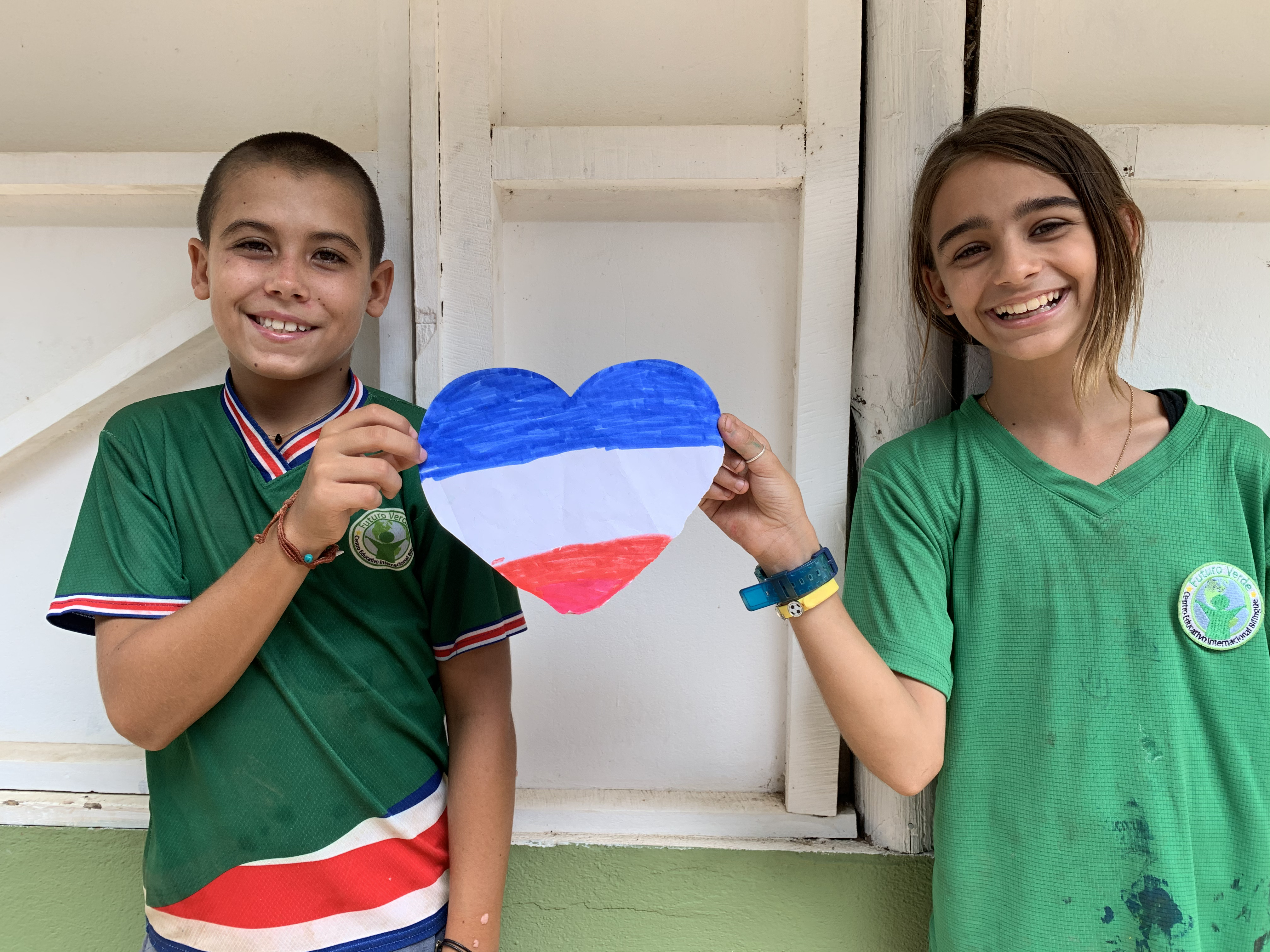
by Noelia | Mar 4, 2021

By Melanie
The festival of the French language is celebrated on five continents. Why? It seems that 274 million people speak French, in France, Belgium, Quebec, in most African countries… with different accents! People everywhere use the same words and the same grammar. But it took twenty-five centuries to invent this language.
What are the origins of the French language?
The origins of the French language go back more than 2000 years. At that time, France was inhabited by Gallic tribes. Among them, they used the Celtic language to understand each other. In the year 51 BC, a great upheaval occurred in the land of the Gauls. The whole of Gaul was conquered by the Roman troops of Julius Caesar. As the Romans were fluent in Latin, this language became the official language of Gaul. Very proud, the Gauls have long been communicating among themselves in their official language. It would be a few hundred years before these two languages merged to form a new one. Do you know what they called this new language? French.
Who invented French?
Despite what one might think, the French language was not invented by a single person. Over the centuries that followed, the French language evolved slowly, at the pace of conquests and the opportunities of history. In the Middle Ages, more variants of French dialects were still spoken in the different regions of France. Because Paris became the capital of France in the 12th century, French should prevail throughout the region.
Although the French language is now defined by dictionaries and grammars, it continues to evolve. If ancestors are banished from the vocabulary, authors are invented to describe new reals.
What is Francophonie?
The Francophonie is part of a community of people who speak French. It is also all the countries or regions where French is spoken. In the world, 57 countries are French-speaking. Examples include Switzerland or Belgium, Quebec in Canada, Haiti or Madagascar. In 30 countries or regions, French is the only official language. It is used by politicians, in the media and taught in schools. This is the case in France, of course, but also in the French overseas departments and territories and in many African countries such as Benin, Burkina Faso or Côte d’Ivoire. In 26 countries, French is one of the official languages, but it is not the only one. In Switzerland, we speak French, German and Italian. In Canada, it is the official language of English. In the city of Pondicherry, India, French is the official language along with English and three Indian languages. There are also countries where French is not the official language, but is nevertheless used by their inhabitants. If you have been to Morocco or Algeria, you may have noticed that the people speak our language very well.
Why do we speak French outside France?
Most French-speaking countries or regions are former French colonies (see the dictionary of the day). This is the case, for example, of Senegal, Madagascar, Quebec, Haiti or Pondicherry. France occupied these countries at the time of the colonies and imposed its language there. After independence (these countries became autonomous), some of these countries continued to teach French in schools and to use it in their administrations. But there are also French-speaking countries that are not former colonies. Belgium, for example. In fact, France’s borders have not always been as we know them today. Throughout history, they have moved. France’s borders extended to the south of Belgium and the north belonged to the Netherlands. For this reason, the official languages of Belgium are French in the south and Dutch in the north.












